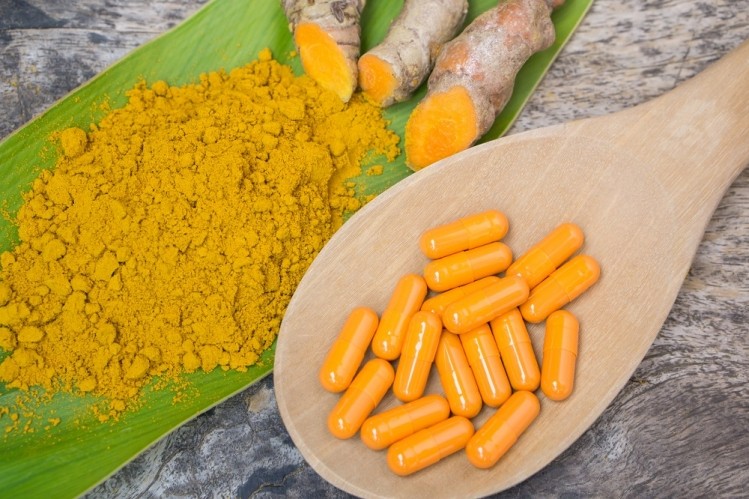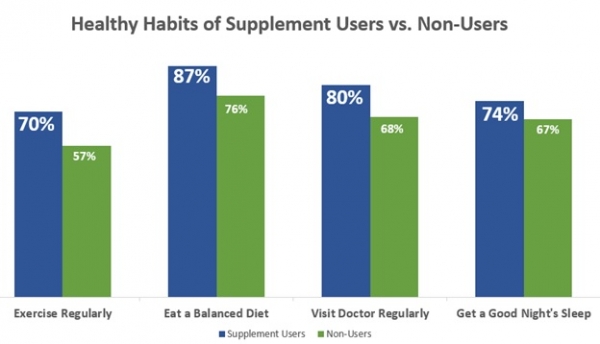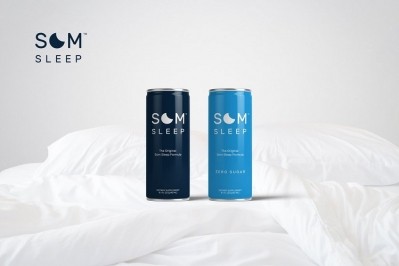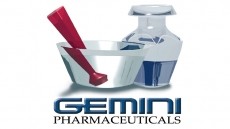Turmeric’s popularity drives botanical supplement use increases, says CRN data

And this has led to a surge in the overall use of botanical and herbal supplements, which are now consumed by 41% of supplement users. This represents an increase of 13% in just five years, and comes despite a raft of negative headlines about the products in the mainstream media.
“Turmeric wasn’t on the survey five years ago,” said Brian Wommack, senior vice president, communications, CRN. “Now, it’s the second most popular supplement in the herbal/botanical category. This year’s survey results show similar upticks with other categories and products—not only in the greater population, but especially among different generations.”
Data presented at the CRN’s Annual Conference in Dana Point, CA also revealed that the use of energy drinks and/or gels has increased by 13% since 2013, from 12% to 25%, while the use of melatonin also increased a whopping 50% or more in each of the age groups surveyed (18-34, 35-54, and 55 and over).
Unsurprisingly, vitamin/mineral supplements remain the most popular category among supplement users (consumed by 98% of supplement users), followed by specialty supplements (51%), herbals/botanicals (41%), sports nutrition supplements (32%), and weight management supplements (20%).
By age group
Breaking down the data by age group revealed that 78% of US adults aged 55+ take dietary supplements, followed by 77% of people aged 35–54, and 69% of people aged 18 to 34.
Drilling down more, 83% of supplement users aged 18–34 take a multivitamin, an increase of 8% from 2017. In addition, 20% take fiber supplements – up 2% from 2017 and 11% from 2013.
For Gen X-ers, 42% of users in this group take herbals/botanical supplements, up from 37% in 2017.
For the Boomers, 46% of users take vitamin D, compared to 34% of Gen X supplement users and 31% of Millennial supplement users. Furthermore, 24% of Boomer supplement users take magnesium, compared to 17% last year. Among the top reasons that Boomers take supplements are healthy aging (28%), heart health (29%), and bone health (31%).
Confidence and trust
The CRN survey data was conducted by Ipsos Public Affairs and included a national sample of 2,004 adults aged 18 and older living in the United States. Of those surveyed, 1,504 used dietary supplements seasonally, occasionally, or regularly.
Overall, the survey found that 75% of respondents take dietary supplements, compared to 65% in 2009.
The data also revealed that consumer confidence in products and trust in the industry remain strong. Almost 90% of US adults (87%) expressed overall confidence in the safety, quality, and effectiveness of dietary supplements. Seventy-eight percent of respondents also perceived the dietary supplement industry as being trustworthy. CRN first asked this question (“To what extent do you perceive the dietary supplement industry as being trustworthy”) in 2016, when 73% responded favorably.
“We’re pleased to see a 5 percent increase in consumer trust in just two years.” said Wommack. “As the industry continues to grow and innovate, we will keep working hard to be worthy of consumers’ trust while helping them live healthier and more fulfilling lives.”
Other highlights
Confidence in the specific categories was varied, with 87% expressing confidence in vitamins and mineral, followed by 65% for specialty supplements, 64% for herbs/ botanicals, 54% for sports supplements, and 46% for weight management products.
The reasons that people take supplements included for overall health and wellness (46%), to fill nutrient gaps (29%), energy (28%), immune support (26%), and bone health (24%).
Seventy percent of supplement users said that the product label is the most important when purchasing DS products, with 36% looking for quality seals like NSF, UL, and USP, 30% looking at the structure/function claims/ health positioning, and 25% looking for a natural claim.
The outlook was also very positive, with 60% of supplement user anticipating taking more supplements over the next five years. The highest increases will be among Millennials, with 71% anticipating an increase in their usage, compared to 67% of Gen X-ers, and just 45% of Boomers.



















